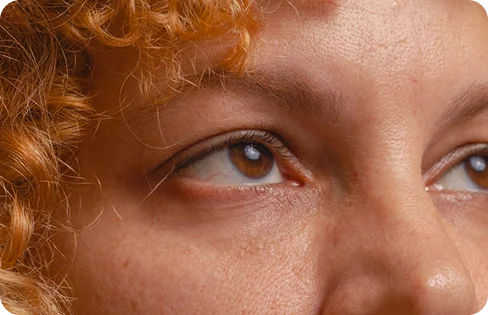Home » Alcohol Treatment New Hampshire
Alcohol Rehab in Hudson, New Hampshire: Outpatient Treatment Programs
At Heartfelt Recovery Centers in Hudson, New Hampshire, we provide compassionate and personalized alcohol addiction treatment in NH to help individuals and families overcome the challenges of alcohol dependence. As one of the leading alcohol rehab centers in New Hampshire, we combine medical care, counseling, and holistic therapies to promote healing for both body and mind. Whether you’re beginning your recovery or continuing your journey after detox, our alcohol rehab in NH offers flexible options—including outpatient and telehealth programs—so you can regain stability, rebuild relationships, and create a healthier future close to home.

What Is Alcohol Use Disorder (AUD)?
Alcohol use disorder (AUD) is a long-term medical condition where drinking becomes hard to control, even when it causes harm. It impacts how your brain processes decisions and stress, making it harder to quit without support. Over time, AUD affects your body, relationships, and ability to function day-to-day. According to the National Institute on Alcohol Abuse and Alcoholism, about 29.5 million people in the US aged 12 and up lived with AUD in 2021, highlighting its prevalence.
The Dangers of Alcoholism
Alcoholism can damage the liver, heart, and brain. It also puts you at greater risk for injuries, overdoses, and long-term mental health issues.
Signs of Alcohol Addiction
- Drinking more or for longer than intended
- Struggling to cut down or stop
- Craving alcohol
- Neglecting responsibilities due to drinking
- Withdrawal symptoms like sweating or shaking
- Continuing to drink despite the problems it causes

The Risks of Quitting Cold Turkey
Quitting alcohol suddenly without medical care can be risky – and sometimes life-threatening. Your body may react with seizures, high blood pressure, or delirium tremens, a serious condition that causes confusion, tremors, and fever. According to medical experts, about 5% of people with severe withdrawal may develop delirium tremens. That’s why medical detox is always the safer route.
Alcohol Withdrawal Symptoms
- Nausea or vomiting
- Sweating and rapid heartbeat
- Shaking or tremors
- Anxiety or irritability
- Insomnia
- Hallucinations
Alcohol Withdrawal Timeline
- 6–12 hours:
Early symptoms like anxiety, headaches, and sweating may start
- 12–48 hours:
The risk of seizures or hallucinations increases
- 48–72 hours:
This is the highest risk period for delirium tremens
- After 72 hours:
Symptoms usually ease, but fatigue and mood changes can linger
How Heartfelt Recovery Treats Alcohol Rehab
At Heartfelt Recovery, we treat more than just the addiction – we support the person behind it. Our approach blends therapy, medical care, and real-life tools that help you move forward in a grounded, healthier way.
Dual Diagnosis Treatment
Many people struggling with alcohol addiction also face mental health conditions like depression, anxiety, PTSD, or bipolar disorder. Our dual diagnosis program treats both at once, and often begins at the PHP level.
Medication-Assisted Treatment for Alcohol Addiction
We use alcohol withdrawal medication in our MAT program to ease cravings and help you stay on track. These medications help manage withdrawal safely, whether you need short-term support or a longer-term solution.
Alcohol Therapy and Substance Abuse Counseling
Our therapy programs help uncover the roots of addiction and teach new ways to handle life’s stress.
- Individual Therapy: Private sessions built around your recovery
- Group Therapy: Share, connect, and grow with others on a similar path
- Cognitive-Behavioral Therapy (CBT): Understand and shift harmful thought patterns
- Dialectical Behavior Therapy (DBT): Learn skills to manage intense emotions and avoid relapse
- Family Counseling: Strengthen relationships, repair trust, and build understanding
- Music and Art Therapy: Support healing through creative expression
- Yoga and Meditation: Reconnect with your body and calm your mind
- Nutrition and Biofeedback: Rebuild your strength and reduce stress in real time
Our Outpatient Alcohol Rehab Programs
Recovery isn’t one-size-fits-all. We offer flexible options to meet you where you are in your healing process. Our programs provide structure, therapy, and ongoing support without putting your life on pause.
Our PHP offers full-day treatment five days a week, giving you structure, support, and regular time with therapists and medical staff, without overnight care.
IOP care offers strong support in a more flexible format (about three hours a day) so you can manage recovery while working or going to school.
Outpatient programs include less frequent weekly therapy for those who need less intensive support. It’s ideal for maintaining long-term recovery.
Virtual treatment offers the same quality support, just from home. It’s available at every level of care and includes all the same therapies we offer in person. Sessions are held over Zoom, and we provide support if any technological issues come up.
Start Alcohol Rehab With Heartfelt Recovery Centers
There’s no perfect time to ask for help – we only have right now. At Heartfelt Recovery, we’re here with respect, warmth, and expert care. Whether you’re taking the first step or trying again, we’ll walk it with you. Call us today and let’s get you back to feeling like yourself.
FAQs
Am I an alcoholic?
If drinking is affecting your health, relationships, or responsibilities, you might have an alcohol use disorder. A professional assessment can help.
Is alcoholism genetic?
Yes. Genetics can influence your risk, but environment and behavior play a big role too.
What are the main alcohol withdrawal syndrome symptoms?
Common symptoms include sweating, shaking, anxiety, nausea, and in severe cases, hallucinations or seizures.
How long does alcohol withdrawal last?
Most symptoms peak within 48 to 72 hours, but some may linger for weeks.
What is CIWA?
CIWA stands for Clinical Institute Withdrawal Assessment. It’s a tool used by professionals to measure withdrawal severity.
What happens during alcohol addiction treatment?
Treatment often includes medical detox, therapy, group support, and life-skills training. Your plan will be customized to your needs.
Can I receive alcohol addiction treatment without going to rehab?
Yes. Outpatient and telehealth options allow you to receive care without entering a residential facility.
What is delirium tremens?
Delirium tremens (DTs) is a severe form of alcohol withdrawal that can cause confusion, tremors, and seizures. It requires emergency medical care.
Can you die from alcohol withdrawal?
Heartfelt Recovery Centers in Hudson, NH, offers professional alcohol addiction treatment in New Hampshire for individuals and families affected by alcoholism. Serving nearby communities like Nashua and Manchester, our programs combine medical care, therapy, and holistic recovery to help clients rebuild their lives with confidence and stability.
Where can I find trusted alcohol addiction treatment in New Hampshire?
Heartfelt Recovery Centers in Hudson, NH, offers professional alcohol addiction treatment in New Hampshire for individuals and families affected by alcoholism. Serving nearby communities like Nashua and Manchester, our programs combine medical care, therapy, and holistic recovery to help clients rebuild their lives with confidence and stability.
What makes Heartfelt Recovery one of the best alcohol rehab centers in NH?
As one of the leading alcohol rehab centers in NH, Heartfelt Recovery Centers provides personalized treatment tailored to each client’s physical, emotional, and mental health needs. Our approach integrates evidence-based therapies like CBT and DBT with holistic care, such as mindfulness, yoga, and nutrition. We focus on sustainable healing, not just short-term sobriety.
Does Heartfelt Recovery Centers offer outpatient or telehealth alcohol rehab in NH?
Yes. We offer flexible alcohol rehab in NH through several levels of outpatient care, including Partial Hospitalization (PHP), Intensive Outpatient (IOP), and Telehealth addiction treatment. These options allow clients to receive structured support and therapy while maintaining work, school, or family responsibilities from home or within their community.
What should I expect during alcohol rehab in New Hampshire at Heartfelt Recovery Centers?
During alcohol rehab in New Hampshire, clients participate in medical supervision, counseling, group therapy, and relapse prevention planning. Each plan is personalized and may include medication-assisted treatment (MAT) and dual diagnosis support for co-occurring mental health conditions. Our caring team walks beside you through every stage of recovery, from the first assessment and care planning to aftercare, including referrals to trusted medical providers for detox when needed.
Does insurance cover alcohol addiction treatment in NH?
Yes. Most major insurance providers cover alcohol addiction treatment in NH, and Heartfelt Recovery Centers works directly with insurers to verify your benefits. We believe cost should never be a barrier to care, so our admissions team helps you navigate coverage, explore flexible payment options, and begin treatment without unnecessary stress.
View Our Resources
Written by Courtney Addiction rarely affects only one person. It touches parents, partners, siblings, and children in deeply personal ways. Fear,...
Written by Courtney How Social Connection Shapes the Recovery Journey Recovery is not only about stopping substance use. It is about...
Written by Courtney Addiction affects more than one person. It reshapes family relationships, communication patterns, and emotional safety. Even when a...





